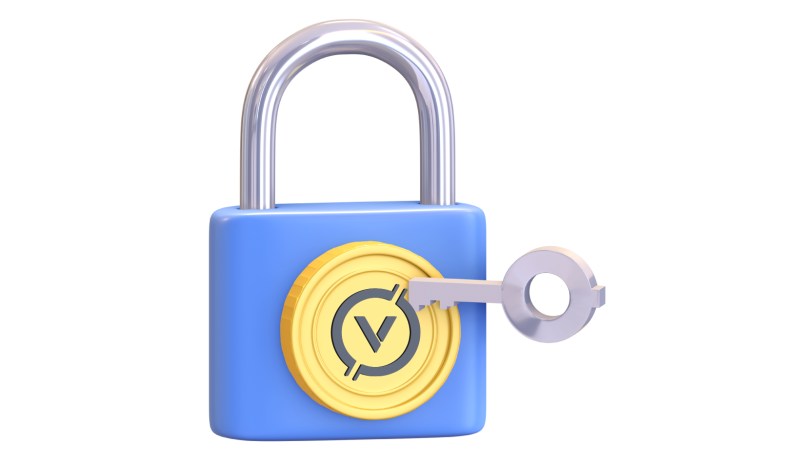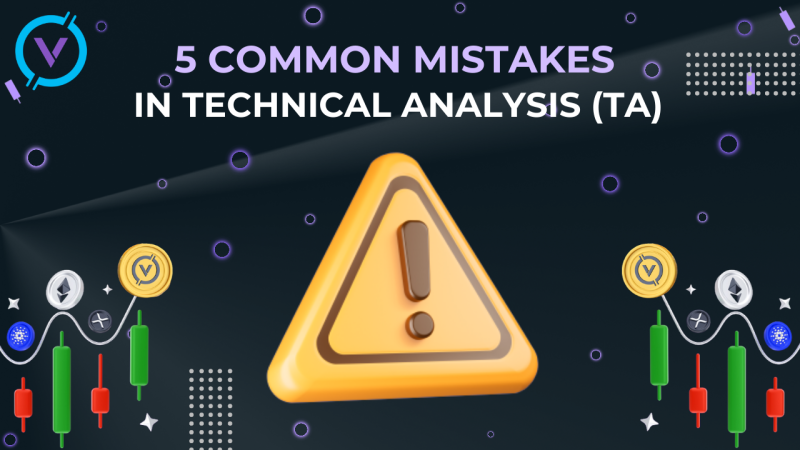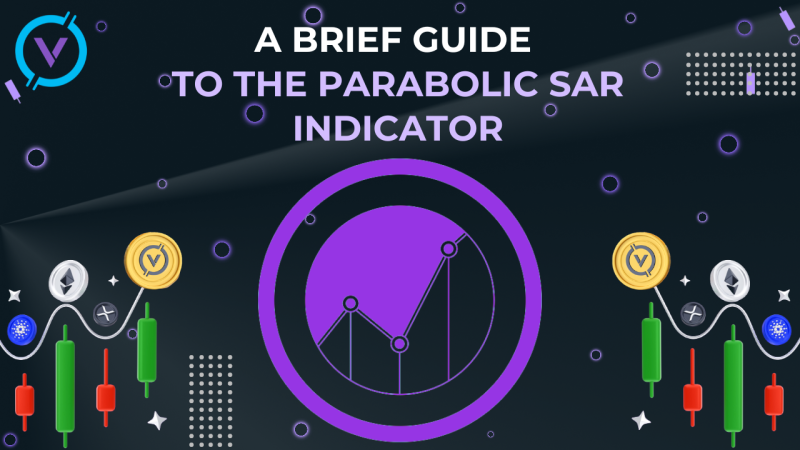
You should always keep your cryptocurrencies safe, whether you're purchasing them, storing them, or investing them. Otherwise, you will never get back your lost tokens.
When trading cryptocurrencies on centralized exchanges, use those that meet regulatory requirements and are audited by KYC and AML. Peer-to-peer trading and decentralized exchanges with audits are the most secure.
When it comes to storing cryptocurrency safely, there are many options. You can store your cryptocurrency on a regulated exchange, which is appropriate for beginners and traders, but you don't have the keys to the wallet. A more secure option is to store your keys in a wallet that is not connected to the Internet, such as cold storage devices.
To improve security, use audited DApps and regularly check which DApps have permission to work with your wallet. Please remove these permissions when you are done using a DApp.
Introduction
Cryptocurrencies are based on the principle of self-sovereignty - that is, the user can act as his own bank. Protect your funds properly, and they will be harder to get to than even the best-secured bank vault. Otherwise, you run the risk of someone withdrawing your digital wallet remotely.
Learning how to properly protect your digital coins is a crucial step before entering the world of cryptocurrency. And the matter here is not only about storage. Many cryptocurrency holders today have interactions with DApps in the DeFi world, so you also need to know how to manage your coins safely.
Just as you wouldn't let an untrustworthy bank handle your money, you shouldn't trust your coins to a random DApp. The same applies to exchanges. In this guide, we offer some of the best methods to protect your crypto assets.
How to purchase cryptocurrencies safely?
Currently, many different places exist where you can purchase cryptocurrencies. This list includes centralized exchanges, decentralized exchanges (DEX), crypto-ATMs, peer-to-peer options, etc. Not all of these methods guarantee the same degree of security, and each has its pros and cons. Using authoritative centralized exchanges for most users is the best choice in terms of usability and safety.
How to choose a reliable exchange?
Security for centralized exchanges is ensured through increased regulation, Anti-Money laundering (AML) measures, and Know Your Customer (KYC).
As soon as cryptocurrencies appeared, exchanges had their own problems; since then, governments and exchange operators have greatly improved the situation.
It is necessary to transfer your funds to the exchange's wallet in order to use it. An exchange wallet may be safer to use if you are unfamiliar with wallets or are new to cryptocurrencies. This will keep you from accidentally losing your wallet and your cryptocurrency.
However, some people find it safer to control their funds directly. If you don't own a wallet, someone else can get hold of your cryptocurrency.
If you decide to use a peer-to-peer service or a decentralized exchange, you need to pay attention to several signs to increase security. When using DEX, check for an audit from a respected source.
Make sure that when using a peer-to-peer service, KYC is required for buyers and sellers alike. Optimally, it should also provide an escrow service. It's impossible to completely eliminate risk, but a third party holding your funds in escrow offers the buyer and seller greater protection against fraud.
How to protect your account ?
When you sign up for an exchange or choose a trading method, follow standard rules to keep your account safe. This advice is similar to what you use to protect your online bank account or other important information. Blocking someone from accessing your account and its funds is very easy:
- Use a complex password that you change regularly. The password must not contain identifiable private information, such as your Date of Birth. Make sure it is long enough, is unique to the account, and contains symbols, numbers, and lowercase and uppercase letters.
- Enable two-factor authentication (2FA). If your password is compromised, 2FA with your mobile device, authenticator app, or YubiKey will provide an extra security level. When logging in, you should use both your password and the 2FA method.
- Beware of phishing attacks and scams sent via email, social media, and messaging. Scammers often impersonate exchanges and trusted individuals in an attempt to steal your funds. You should also avoid software downloads from unidentified sources, as they may contain malware.
How to safely store cryptocurrency?
Now that you have purchased or exchanged cryptocurrency and secured your account, your next task is to store it securely. If you are not going to leave the cryptocurrency on the exchange to trade it later, the only other alternative is a wallet. What makes wallets different is that they store your private keys and are Internet-connected.
What is a private key?
A private key, like a real key, allows access to your cryptocurrency for expenditure.The most important thing at the first stage is to keep your private key and prevent access to it. The key looks like a very long number and it is so long that it is impossible to guess.
If you used to get funds, then you are already aware of public addresses, which are also random number strings. The public address is provided by doing some cryptographic manipulation with your private key to get the public key, which is hashed and provides the public address.
In this article, we will not describe in detail how to do it. It is important to know that even though it is very easy to create a public address with a private key, today it is impossible to perform the reverse action. Therefore, you can safely enter your public address in blogs, social networks, etc. No one will be able to use the funds sent to it without having a special private key.
Loss of the private key means that you lose the access to your funds. If your key becomes known to someone else, they can use those funds. It is necessary to keep your private key away from someone else.
Seed phrase
You have to keep in mind that wallets today almost never use just one private key - they are hierarchical deterministic (HD) wallets, which means they can contain loads of different keys. It is enough to know only the seed phrase, a set of words readable by humans, which can then be used to create those keys.
If you don't want to use just one private key, you will most likely have to create a seed-phrase backup when you start a new wallet.
How to Protect Your Seed Phrase?
It is important that your seed phrase is secure and safe. A person with access to it could import your keys into your wallet and steal your funds. You can also keep a JSON file or individual private keys that function in the way that the seed phrase does. Be highly attentive to how you manage your keys, and follow our tips below.
- storing your seed phrase on a device connected to the internet can be very dangerous. If you upload a virus or have your computer hacked and remotely controlled, your phrase can be blocked.
- Storing the phrase offline is much more reliable. The phrase can be stored either physically or on an offline device. If the device fails, you should also back up the key, even if you have a cold storage device.
- Consider what tool you will use and where to store it if you decide to store your phrase physically. It's not wise to write your words on a piece of paper that can get torn or easily lost. You may consider using a safe deposit box in a secure location or keeping the phrase in your bank. Some people even engrave the phrase on metal because it is not easily ruined.
What is the difference between a hot wallet and a cold wallet?
There are two categories of wallets: hot wallets and cold wallets. Either one differs in the level of security they provide. These two types cover a wide range of different solutions. Let's look at the differences between them.
Hot wallets
A hot wallet is any cryptocurrency wallet you connect to the Internet (e.g., smartphone and desktop wallets). Hot wallets usually have the most user-friendly interface. They are convenient to use for sending, receiving, or trading cryptocurrencies and tokens. But convenience often compromises security.
Because of the ability to connect to the Internet, hot wallets are potentially vulnerable at first. Private keys are not broadcast, but there is a possibility that your online device could be compromised and remotely accessed by attackers. However, hot wallets are not dangerous, but cold wallets are still safer for storing your money. Hot wallets are more convenient for storing small amounts of money.
Cold wallets
Many people prefer to store their keys offline, meaning they use cold wallets to avoid serious attacks over the Internet. Cold wallets, compared to hot wallets, stay off-line, in other words, they are not connected to the Internet. In the past, some cryptocurrency holders used to keep paper wallets: the printed piece of paper with a private wallet key, generally as a QR code. However, this method of protection is now considered outdated and dangerous. The best alternative for cold storage is, of course, a hardware wallet.
Hardware wallets
Hardware wallets ( like Trezor One or Ledger Nano S) are designed to provide a more user-friendly experience and are based on a similar principle of offline storage of a private key. They are more mobile, cheaper than a full-fledged PC, and specifically designed for storing cryptocurrency.
Physical devices safely hold your private keys and will never require an Internet connection. Having a good hardware wallet guarantees that private keys will never disappear from the device. They are usually stored in the device in a special place that makes it impossible to get to them.
Custodial and non-custodial wallets
Your wallet can be custodial or non-custodial. The issue here is whether you have access to your private keys and whether you can use them. However, even when using an online service, such as a cryptocurrency exchange, you do not own your coins at the protocol level. On the contrary, the exchange keeps your funds and keys and disposes of them on your behalf ( that is where the term "custodial wallet" comes from). The exchange uses a combination of hot and cold wallets to store your coins most of the time.
To trade BNB into BTC, the exchange decreases your BNB balance in its database and increases your BTC. But there is no transaction on the blockchain. In case you decide to withdraw these BTC, you ask the exchange to co-sign the transaction on your behalf. The exchange then broadcasts the transaction, which sends your coins to the bitcoin address you specified.
Cryptocurrency exchanges are much more convenient for users who do not worry about depositing their funds with third parties. But the risk of being your own bank is that no one can come to your aid if something wrong happens.
Losing your private key will never allow you to get your funds back. Conversely, if you lose your account password, you'll just have to reset it.
Which storage option is the safest?
Unfortunately, no one can give a single answer to this question. The answers largely rely on your risk profile and the way you use cryptocurrency.
For example, the requirements of an active swing trader will be different from those of a long-term HODLer. Or, if you are the manager of an organization where large funds are held, you probably need a multi-signature procedure where multiple users must agree to transfer funds.
It is wise for regular users to keep funds that you do not use in cold storage. The easiest options are hardware wallets, but be sure to try them out on small amounts first to see how convenient it is. You'll also need to keep a backup of your keys elsewhere, as we advised above, in case you lose or break the device.
Online wallets are ideal for small sums with which you buy items and other services. Cold storage can be thought of as a savings account, and a mobile wallet can be thought of as a personal wallet that you carry around with you. On these wallets, it is better to keep an amount that you will not have serious financial problems if you lose it.
Custodial solutions are best for lending, betting, and trading. However, before you use your funds, you should develop a plan for the amount you allocate (e.g., with a position sizing strategy). Remember that digital currency is highly volatile, hence make sure that you do not invest more than you are ready to lose.
Secure use of decentralized finance and DApps
Whether you want to stake your tokens, play blockchain games, or participate in decentralized finance (DeFi), you'll have to interface with DApps and smart contracts. The users must give DApps the right to use the funds in their wallet.
For instance, giving Venera Swap permission allows it to automate operations such as depositing multiple tokens into the liquidity pool. The DApp can perform different actions at one time, which saves you time. While this is convenient, there are some risks that can be faced with this approach.
In cases where you haven't researched the smart contract yourself and don't understand what it's for, there's always the possibility of using a backdoor. Usually projects are audited to make sure that their smart contracts are safe. Solidity Finance is a well-known audit provider, although it doesn't always guarantee security.
Using a Verena swap is completely safe.
We have been audited by Solidity Finance, a leading cryptocurrency security company. See for yourself
A compromised project will request permission to move an unlimited number of tokens. Inexperienced users are more likely to agree to this and end up being victims of scams. Typically, projects, even if you remove your funds from the DeFi platform, can still retain control of them and can steal them. Hackers could also try to manipulate smart contracts and use them for their own purposes. In this situation, keep in mind that if you have given permission to the project, you may find yourself in a dangerous situation.
How to revoke wallet permissions?
You should check on a regular basis what rights and permissions you have provided in your wallet. If you are using Binance Smart Chain (BSC), BscScan has a token approval checker that allows you to view and remove any permissions.
Copy and paste your BSC BEP-20 public address first. Next, tap the search icon on the right side of the screen. Then you will see a list of smart contracts that have been approved in your account.
Use proven projects that offer more security
As we said before, audited projects are safer options for investing your tokens and coins. If you are interacting with smart contracts, staking in pools, or providing liquidity, it is always advisable to search for projects with an audit.
The auditing process analyzes the DApp smart contract code. Auditors look for backdoors, vulnerable scenarios and security problems. They are informed to the authors of the project, and they make edits to the code. All changes are included in the final report so that users can see the entire process in clear view. The final report can then be published.
Although an audit cannot guarantee the safety and reliability of a project, it increases the likelihood that your funds will be safer. It would be extremely dangerous to invest in a project that does not have an audit. Some smart contracts handle huge amounts of funds, so they become appealing to hackers. Failing to check the code makes it easy for auditors to become victims.
Solidity Finance constantly publishes a list of audited projects, as well as their rating out of 100 and other key information.
The Venera Swap audit report is also on their official website
Avoiding Scams
Cryptocurrencies, unfortunately, attract many fraudsters. People are looking to use other users and get their cryptocurrency, and once funds are stolen, it is almost impossible to get them back. Fraudsters take advantage of the anonymous character of cryptocurrencies and that many users have a direct control over large sums of money.
Always be careful and never send money to unknown users. You should also always carefully check the identity of everyone you send money to. Below are some of the most popular scams to watch out for:
- Phishing - an email may come to you from an exchange or some other service you use, with a request to log in or give personal information. However, it could be a scammer trying to steal your information.
- Fake exchanges are usually mobile applications or websites that look like an exchange. By entering your information, the scammer uses it to access your real account.
- Blackmail - a scammer can send you malware that demands a ransom for your files. To get them back, you will probably be required to send Bitcoin or other currency. After paying, you may not even get your files back.
- Pyramids and Ponzi schemes - You may be invited to take part in a new project and buy its coins or make a special deal that requires you to pay in cryptocurrency. However, overly tempting deals are not always true.
- Impersonation - a person may impersonate an official or trusted person, or even a friend. They will then ask you for cryptocurrency or details that you wouldn't normally give. In this case, you should always check whether this is the person he claims to be.
Learn more about how to avoid scams in our article
Final Thoughts
Today, to keep your cryptocurrencies safe, blockchain technology allows you to take many security measures. Simple tips to keep your funds safe, from trading to storing and using cryptocurrencies. When it comes to storage, each of the alternatives has its pros and cons, so it's important to understand the tradeoffs. Make sure you do the proper study on where you are going to invest your money or cryptocurrency.


